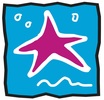Sea Star Swim School's Response to COVID-19 (Coronavirus)
New Policies/Guidelines, effective May 1, 2020
Covid-19 Updates regarding classes and schedule
COVID-19 is a major topic of discussion these days. At Sea Star Swim School, we are taking extra precautions for the safety of our parents and our staff.
As of May 11, 2020, we have reopened Sea Star for classes under a new, modified schedule that includes social distancing and limited crowd sizes. For specific information, please visit our New Guidelines page.
We know this is a stressful, uncertain time for everyone, Our staff is dedicated to exercising the utmost caution while teaching your children. If you are unsure about swim classes, we hope this information will be helpful in making a decision.
Questions about Swimming and Covid-19
Is it safe to swim?
Let’s answer that question first—YES, it is safe to swim! In fact, it may be the best form of exercise available under the circumstances.
The most important concern is our pool. We have already increased our frequency of cleaning heavily trafficked areas of our facility, like the lobby and the locker rooms by wiping down frequently touched surfaces with an approved disinfectant.
Sea Star uses chlorine for sanitation of our pool. We consistently earn 100% on our monthly inspections with the Tennessee Department of Health. Our use of chlorine as a sanitizing agent is good news for swimmers because a study confirmed that coronavirus cannot be transmitted in drinking water or in swimming pools if these mediums are properly chlorinated. This study was completed by Ireland’s Health Service Executive, which is essentially the equivalent of the Department of Health & Human Services in the United States
To put this in perspective, drinking water from your tap at home would need to test at 0.5 mg/l of free chlorine to be safe. For swimming pools, the state of Tennessee requires a free chlorine residual of 1.0-3.0 mg/l; Sea Star’s level is 3.0.
What does all of this mean to our customers and staff? Our pool is clean and sanitized for your protection on a daily basis. We meet and exceed all state required levels of cleanliness. Read the latest news from the CDC on Water Transmission and COVID-19
It’s also a healthy outlet for your swimmers. More than ever, our kids will need to get some exercise and physical activity, and have a predictable routine. This is key to staying healthy and happy! Having our kids stick to their routine helps reduce anxiety for our kids. A swim lesson will not only teach them skills; it will get them exercising during this time when options are limited. We will practice all proper social distancing during the lesson to protect your swimmer and our teachers. Since we know the Coronavirus cannot live in chlorine, and does not thrive in humidity, our pool and pool deck are virtually a safe space for those who enter.
What We Can Do To Help Each Other:
Whether you are talking about COVID-19, flu, strep or any other communicable disease, here are recommendations from the Center for Disease Control on preventing the spread of illness:
- Avoid close contact with people who are sick.
- Avoid touching your eyes, nose, and mouth. It is much harder than it sounds, especially for kids.
- Stay home when you are sick, and most importantly, keep your child home when illness strikes. COVID-19 seems to be less of a problem with children, but for older adults or individuals with compromised immune systems, it can have devastating effects. We need to protect our staff and the other children so everyone stays healthy. NOTE: Do not bring sick siblings to sit in the lobby during a healthy swimmer’s class. Even though they aren’t in the pool, they are still spreading germs.
- Practice good respiratory etiquette by covering your cough or sneeze with a tissue, then throw the tissue in the trash. While in class, your swimmer should still cover their mouth and nose when they cough or sneeze—an elbow or an armpit work fine!
- Clean and disinfect frequently touched objects and surfaces using a regular household cleaning spray or wipe.
- Wash your hands often with soap and water for at least 20 seconds, especially after going to the bathroom; before eating; and after blowing your nose, coughing, or sneezing.
- If soap and water are not readily available, use an alcohol-based hand sanitizer with at least 60% alcohol. Always wash hands with soap and water if hands are visibly dirty.
Again, should there be any changes to our schedule, we will contact you by email as soon as we can.
For more information about COVID-19, check these websites:
Centers for Disease Control and Prevention:
- General Information: https://www.cdc.gov/coronavirus/2019-nCoV/index.html
- Risk Assessment: https://www.cdc.gov/coronavirus/2019-ncov/summary.html#risk-assessment
- Tennessee Department of Health: https://www.tn.gov/health/cedep/ncov.html
- TN Coronavirus Public Information Line: 1-877-857-2945 Available 10 a.m. to 10 p.m. daily

